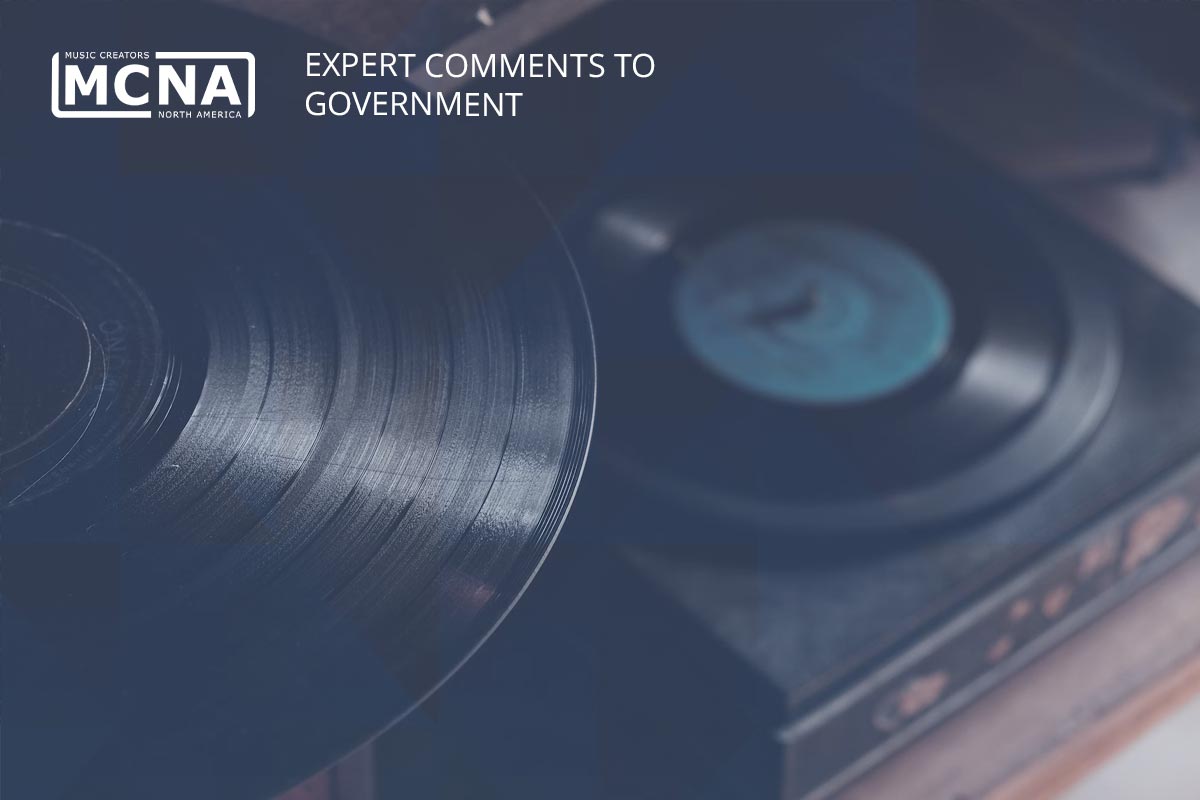To the Chief of the Litigation III Section:
On behalf of the Alliance of undersigned independent songwriter and composer organizations (many of whom participated in the April 14, 2015 meeting in Washington, DC with the US Department of Justice), and further to more recent correspondence sent by the Alliance to the DOJ beginning with our submission dated May 1, 2014, our allied organizations and their tens of thousands of members would again like to extend our sincerest thanks to the DOJ for devoting so much time and effort toward examining the music creator perspective regarding the proposed modernization of US performing rights society (PRO) consent decrees.
We remain especially gratified that the DOJ, consistent with the mandate for the protection of authors and inventors set forth in Article I, Section 8 of the US Constitution and supported by Congress through enactment of the US Copyright Act, recognizes that along with protecting societal interests through competition, the preservation of creators’ rights is also of paramount importance in the maintenance of both a free society and a robust, competitive economy.
Our response to the Antitrust Division’s Request for Comments on PRO Licensing of Jointly Owner Works is easily summarized as follows: Not only is it imperative for the economic health of music creators, it is also mandated by sound economic and competition principles, that the right of each creator (and his or her designated agent) to independently and freely license an entire copyright, or alternatively, only his or her owned share of a copyrighted work at his or her choice, be upheld. Respectfully, we suggest that both fairness and common sense compel such a result.
It has long been recognized that co-authors of copyrighted works are treated under US law as “tenants in common,” and it is pursuant to that legal theory that nearly a century of custom and usage in the music industry regarding the creation of joint musical works and their licensing have developed. In the comprehensive report prepared for the US Senate in 1960 as part of the copyright revision studies leading up to enactment of the US Copyright Act of 1976, it was stated:
In dealing with the incidents of the joint ownership of copyrights, the courts historically resorted to an analogy which they had previously utilized in cases involving jointly owned patents. The joint owners of a patent had been regarded as being in the same relationship to each other as tenants in common of real property and the cases involving jointly owned copyrights extended this analogy to them. Copyright Law Revision Studies Prepared for the Subcommittee on Patents, Trademarks and Copyrights on the Committee on the Judiciary, United States Senate, 86th Cong. 2d Sess pursuant to S. Res. 240 Study 12 (Joint Ownership of Copyrights) (1960).
Insofar as we are aware, in line with the findings of that seminal Senate Report, US courts have universally determined that absent an agreement to the contrary among co-owners, their relationship “is one of tenants in common,” who may each choose to license an entire work, or only their portion of it. See, Korman v. Iglesias, 736 F. Supp. 261 (S.D. Fla. 1990); Picture Music, Inc. v. Bourne, Inc., 314 F. Supp 640 (SDNY 1970), aff’d 457 F.2d 1213 (2d Cir. 1972); Shapiro Bernstein & Co. v. Jerry Vogel Music Co., 73 F. Supp. 165 (SDNY 1947).
Thus, music creators in the United States have never had to worry about whether so-called “fractional licensing” of their works is subject to legal obstacles. Under the law, they may as tenants in common each chose among licensing one hundred percent of their joint work and accounting to one another, licensing only their share of the joint work, or agreeing with their co-creators by contract to some other arrangement whereby, for example, one co-creator may act as administrator for the other(s). This flexibility has enabled songwriters and composers to engage in the creative process with one another without concern for whether one or the other shared the same PRO, music publisher, or other licensing agent, and to choose their PRO on the basis of nothing other than individual need, judgment and free choice.
The result has been the flourishing of collaborative artistic creation in the music creator community under a system that overwhelmingly favors fractional licensing rather than the cumbersome and opaque process of licensing one hundred percent of a work and accounting to other co-owners. This is the case in the performing rights area, as well as in the licensing of other rights in the copyright bundle, such as the synchronization of a joint musical work in audio-visual contexts. Why? Because when given free choice, the market has dictated that creators seek to control their own portions of works, rather than relying on others with whom they have no relationship other than artistic creation (or worse, the agents of those co-creators with whom they have no connection whatsoever), to collect and pay them their fair share of earnings.
Imagine a creative community forced to abandon fractional licensing in favor of a compelled, one hundred percent licensing system governed solely by the principle of accounting (even if such a rule could be limited in application only to the PROs, a limitation about which we have extreme doubt). Prospective co-creators would be forced at the threshold of their artistic relationship to evaluate one another principally on the basis of business acumen, accounting honesty, and conflicting publishing and licensing relationships rather than on artistic compatibility and merit. The result would have the effect of forcing self-imposed limitations on artistic freedoms, chilling the very creative process the Constitution seeks to protect. It would with equally obvious certainty result in utter chaos for co-creators regarding works already in existence. These cannot be judged good results under any theory of competition of which we are aware.
Even a cursory review of the charts measuring music sales and popularity over the past several decades reveals an ever-increasing tendency among music creators to collaborate in the composing and songwriting process. Currently, these charts reveal that on average well over eighty percent of songs are co-written, often by more than two and up to a dozen co-writers. Each co-creator has his or her own performing rights society relationship among the dozens of such PROs around the world, and each has assigned licensing rights to a music publisher (whether an outside entity or a self-owned company, or often, both acting as co-administrators of that author’s share of rights). Compelling one such co-creator or his publisher or agent to race the others to negotiate and issue licenses, collect royalties, audit for veracity, and accurately account to co-creators and co-owners would be an absurdity. But that is exactly the system that would be engendered by compelled one hundred percent licensing.
The likely, short-term result of such a system would be that most co-creators would fail to be paid at all, having no relationship with the party doing the licensing on his or her behalf, and without recourse against the copyright user for non-payment. The long-term outcome would be the development of a system in which only co-writers with identical PROs and publishing representatives or agents could collaborate, potentially chilling or destroying not only artistic creativity and musical output with accompanying damage to the economy, but also crushing competition by eliminating the possibility of survival for all but the largest and most dominant PROs and music publishers.
Moreover, compelled one hundred percent licensing would create the anomaly of having the co-author with the smallest share of a copyright, and therefore the least at stake in driving negotiations of licenses toward realization of full market rates, being perpetually sought after by prospective copyright users as the licensing party. A five percent owner of a copyright (whose fractional ownership may have been limited to a minor split due to a smaller copyrightable contribution) might easily seize upon the benefits of licensing at rates far below market in order to collect and hold one hundred percent of the licensing fees and royalties, artificially and dishonestly driving down music royalties to rates far below fair market value. The result could easily be the collapse of the music creator economy, rather than the increasing of efficiencies through fair market competition that antitrust laws generally seek to achieve.
Finally, we would be remiss in failing to note that songwriters and composers affiliated with non-US PROs will presumably continue to have the flexibility of fractional licensing though those societies. Application of compelled one hundred percent licensing on American PROs could cause a mass migration of American writers to foreign societies, who would undoubtedly welcome them with open arms to the detriment of the US PROs and the American economy. The practical effect of this situation is difficult to gauge, but it suffices to say that at best there would be mere confusion, and at worst massive disruption in the American performing rights licensing marketplace. It should be noted that our non-US colleagues naturally reserve their rights to support licensing and joint authorship rules and systems appropriate to non-US territories apart from their support of the positions set forth herein regarding the US.
In closing, therefore, the undersigned independent music creator organizations, representing tens of thousands of the world’s working songwriters and composers, urge that the US Department of Justice move carefully in considering the issue of compelled one hundred percent licensing, and opt to maintain the freedom of choice under tenancy in common principles that have governed the rights and responsibilities of music creators, PROs, copyright users and consumers for over a century with great benefit to all.
We also take this opportunity to respectfully remind the DOJ that we regard this issue concerning joint works, and all other issues in connection with the consideration of PRO consent decree reform, as inexorably tied to the issue of transparency. As we have noted in the past, and as we will note again in further comments to DOJ in the near future, transparency is the sine qua non of music creator survival in the digital age. Without it, all other advances in rights, rates and protections serve little purpose for composers and songwriters, whose right to know exactly how their works are licensed and paid for, in full detail, must be upheld in any marketplace that seeks to be fair and efficient.
Thank you for your consideration.
Sincerely,
Rick Carnes

